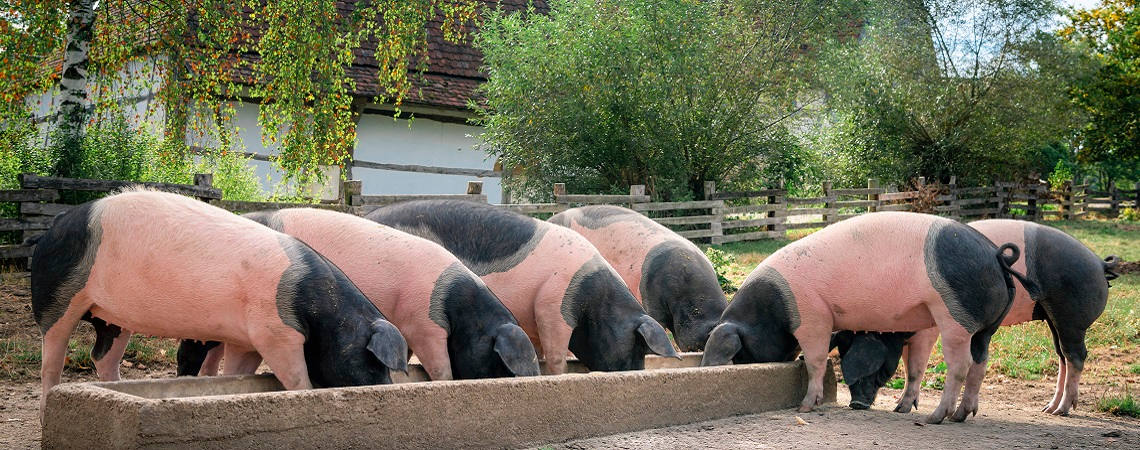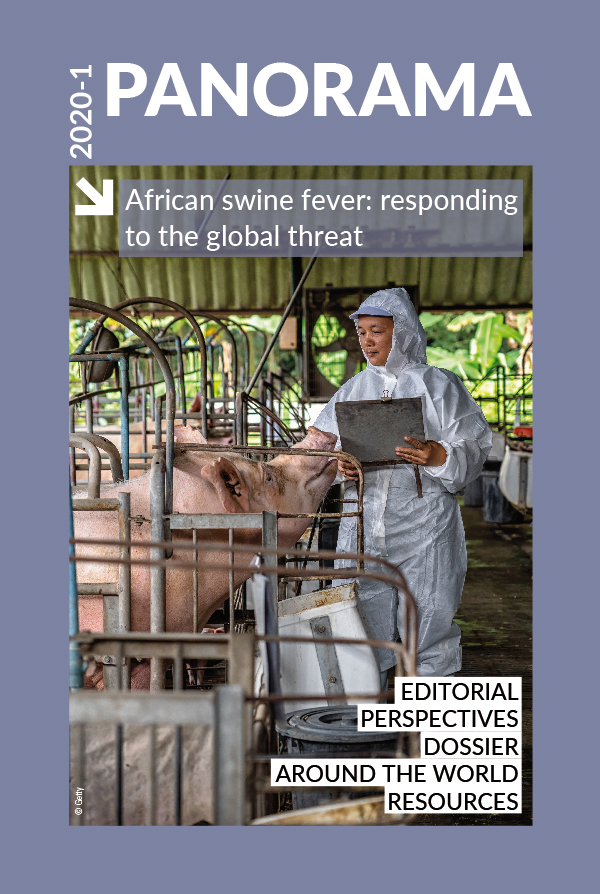Perspectives Posted on 2020-07-21 08:51:06
Joint actions
Standing Group of Experts on ASF for Europe
Keywords
Authors
Andrea Gavinelli (1), Simona Forcella (2) & Bernard Van Goethem (3)
(1) Head of Unit, Official Controls and Eradication of Diseases in Animals (SANTE.DDG2.G.3), European Commission.
(2) Policy Officer, Official Controls and Eradication of Diseases in Animals (SANTE.DDG2.G.3), European Commission.
(3) Director, Crisis Management in Food, Animals and Plants (SANTE.DDG2.G), European Commission, and President of the GF‑TADs for Europe.
The designations and denominations employed and the presentation of the material in this article do not imply the expression of any opinion whatsoever on the part of the OIE concerning the legal status of any country, territory, city or area or of its authorities, or concerning the delimitation of its frontiers and boundaries.
The views expressed in this article are solely the responsibility of the author(s). The mention of specific companies or products of manufacturers, whether or not these have been patented, does not imply that these have been endorsed or recommended by the OIE in preference to others of a similar nature that are not mentioned.
Since 2014, and with the support of the European Commission, the SGE‑ASF has met 14 times, covering many different strategic topics related to the prevention, control and eradication of ASF. Recommendations were drafted to encourage countries to take action to improve transparency, biosecurity, surveillance, hunting practices, long-term management of feral pigs, awareness campaigns, border controls, investigation of outbreaks, and data collection and sharing.
The SGE‑ASF for Europe represents an opportunity to promote fruitful regional discussion and increased transparency among both affected and non-affected countries in Europe. The GF‑TADs platform offers the ideal framework to discuss and exchange information on mitigation measures, based on scientific and technical grounds.
All participating countries are asked to put in place the recommendations drafted during the SGE–ASF meetings. Unaffected countries are able to take advantage of the experience of other countries. In addition, a GF‑TADs team of experts offers on-the-spot support for preparedness, control and eradication activities to both ASF-affected and non-affected countries.
The growing importance of this initiative was demonstrated during its 14th meeting, which took place in Sofia, Bulgaria, from 10 to 11 September 2019. Representatives of 34 European countries attended, as well as a representative of the People’s Republic of China. During this meeting, a high-level ministerial session was organised to call for ASF coordination, awareness and preparedness in South-East Europe.
Other regions have taken note of the significant role played by the GF–TADs in Europe and by its SGE‑ASF, and are building synergies and designing activities to follow its example. Recently, GF‑TADs for Asia and the Pacific and GF‑TADs for the Americas launched similar campaigns, with the aims of building and strengthening regional expertise, exchanging knowledge and supporting these regions in the prevention, early detection and control of ASF.
________________________________________
(1) The Global Framework for the Progressive Control of Transboundary Animal Diseases (GF‑TADs) is a joint initiative of the World Organisation for Animal Health (OIE) and the Food and Agriculture Organization of the United Nations (FAO) that endeavours to empower global and regional alliances in the fight against Transboundary Animal Diseases (TADs), to provide for capacity building and to assist in establishing programmes for the specific control of certain TADs based on global and regional priorities.
| More information on the Standing Group of Experts on African Swine Fever for Europe |
| OIE portal on African swine fever |












